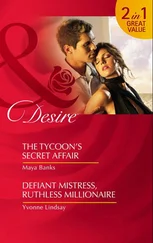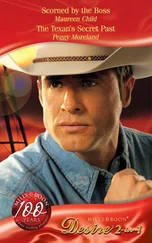“What?”
He shook his head. “That may not have been wise, signorina. The way is long and hard.”
I narrowed my eyes. “How long?”
“Above five miles. And upward.” He made a weak gesture up the hill, to where an indistinct skyline was a silver thread emerging from the dark. I shrugged, with a bravado I did not feel, and trudged after him barefoot. My feet stung on the path, proving the brother’s point—but I had already lost one shoe before I flung the other; what was I to do, walk the hill with one foot shod and the other bare? I raised my chin and caught him up—no mean feat for he was tall, his stride was long, and his pace quick.
“Where exactly are we going?” I puffed.
He did not turn. “To Fiesole. There is a Franciscan monastery on the hilltop there—they will offer us sanctuary and sustenance until we may calculate our most expeditious course of action.”
I garnered three things from this speech.
Qualcosa Uno : Brother Guido no longer had the notion of ditching me. His use of “we” and “our” warmed my chilled heart. But,
Qualcosa Due : he was angry with me. And I could not blame him. One minute he was safe at Santa Croce, with nothing more to worry him but what volume he would read in the morning, and the next minute he was running for his life with a prostitute who had needlessly placed him in mortal danger. Oh, yes, and,
Qualcosa Tre : his style of speech was somewhat different from mine; he would never use one syllable where three would do.
I trudged beside him in silence for a spell, but as the ground began to rise behind the city I had to ask him to stop as my feet were blistering. The look he gave me was not unkind, and he helped me to sit in a broom bush for a little. I wiggled my sore toes, thinking that these poor members were not designed for such expeditions. I had always had such pretty white feet—even that fiend Botticelli had remarked upon them as I had held my pose as Flora. I remembered, too, soaking my feet in a golden bowl of rose water at the house of a minor Medici, when the silver Turkish slippers he liked me to wear in bed had rubbed them raw. Now they were a mess, and fat tears of self-pity swelled in my eyes. The monk swam into view as he knelt before me. “Signorina” he said, haltingly. “May I offer, that is . . . in an effort to alleviate your suffering, to offer you present relief . . .”
To my surprise he was holding out to me his own sandals, rough leather paddles with a simple thong apiece to hold them on. But I only had to try one against my foot to know that I might as well have worn a pair of twin shrimp barges from the Arno, they were so large. The difference in size between the monk’s feet and mine elicited the first smile of the evening. My grin broadened with the thought that he must have a big cock.
Below us the kites wheeled around the great dome of the cathedral, the striped marble turning it to a great tiger sleeping in the half-light, sated by the hunt and waiting for dawn. Beside it the lantern tower of the Medici palace, home to Florence’s greatest family, stood crowned with teeth like a crocodile’s gaping jaw. Brother Guido hauled me to my feet and I could sense him softening toward me—gaining an understanding that I had not wished for what had happened, that I had fallen into this pass by foolishness, but now wished it away, like someone who has jumped headlong into a well and realizes his mistake on the way down. I thought of saying somewhat of this to the brother, but then remembered that my metaphor might have unfortunate recollections for the fellow; I saw again his friend’s head bouncing down the well shaft in Santa Croce, and heard the attendant splash. So I kept my peace and let him speak if he would. And at length, he did.
“Well, Signorina Vetra, you’d better tell me exactly what happened today. Try to leave nothing out, for there may be important circumstances which might mitigate our culpability when we attempt to clear ourselves of this business.”
I turned wide eyes upon him. “You think we’ll be able to get out of this?”
He nodded beneath his cowl. “I’m certain that if all is explained, the thing can be put to rights.”
I saw that his confidence had risen with the terrain, and felt it in myself too. The road snaked ahead, and pointed black cypresses pierced the sky, like a rank of spears defending us. Regiments of vines stood in serried ranks, hiding our progress and providing a pathway. The vine leaves were glossy in the fading moon, night purple with a bloom of blue chalk. I craved the sweet globes of the grape harvest, but it was too early in the year; the vines were naked. My stomach was light but my shoulders were heavy with the burden of secrets. If I recounted the entire story to the monk, he would share the weight with me. The field mice, roused by our step, scuttled over my bare feet, making me giggle. Our breath smoked as we panted, but I was warmed by my miniver and the exercise. I even forgot my poor feet for a spell. Aye, as we climbed up the blue hill away from Florence, the sleeping tiger and the tower of teeth, I began to feel safer, and wondered, briefly, if we were mistaken to feel so.
But my companion, too, sounded positively chirpy as we climbed into the lightening sky. “Yes, Miss Vetra, we are not entirely friendless. The abbot of this monastery we seek now is an old friend, and my family, of course—” He broke off. But not before I had divined that he was very well connected, and might be of some influence. He waited, and I plunged into the silence with an account of what had passed that day, the commission to become Flora for Botticelli, the glories of the painting in progress, the artist’s sudden anger. I told him of my thievery of the smaller painting from the panel, and, somewhat shamefacedly, of my mischievous replacement of it with the pamphlet Brother Guido had given me. I then told, in muted tones, of the murder of Enna and Bembo, that in the first instance my identity was mistaken, and in the second, I was wanted for murder. The tale was long, and by the time I had told it, my throat was as raw as my feet. But we had come some considerable distance in the telling, and were now among the lush villas that sat on the hill, where, as at San Miniato, the rich roost loftily above the city. The way had improved, and I peered curiously through the high gates and arches to elegant, peaceful courtyards with shaped trees and ornamental lakes.
Once—I had to look back to make sure—I glimpsed a giraffe, striding slowly in the blue predawn, bending its long neck to nibble at a myrtle hedge. I turned to Brother Guido, to share this fantastic sight, but the monk was thoughtful once again. I thought at first that his anger had returned, but a glance at his noble profile told me that he was considering carefully what he had been told. I considered the tale myself—and concluded, with a sinking heart, that it sounded like a tale told by an idiot; a fantasist and lunatic. But the brother, who had seen the evening’s conclusion to the day’s beginnings with his own eyes, seemed in no wise inclined to doubt my story. Continuing his steady pace, he eventually broke his silence. “Even the most judgmental listener would have to concede that, but for a moment of madness and mischief on your part, the sequel to your transgressions was far in excess of the relative proportions of a fitting punishment.”
His bookish language was beginning to irritate—only when I looked at his handsome countenance could I begin to forgive. “Meaning?”
“In short, signorina, these forces that pursue you are clearly concerned with a greater crime than a stolen painting.”
I digested this in silence. “What crime?” I asked, truly be-mused, but before he could reply I spied a monastic mass of gated high walls and a steeple, and grabbed the brother’s arm. Our journey was surely over.
Читать дальше












